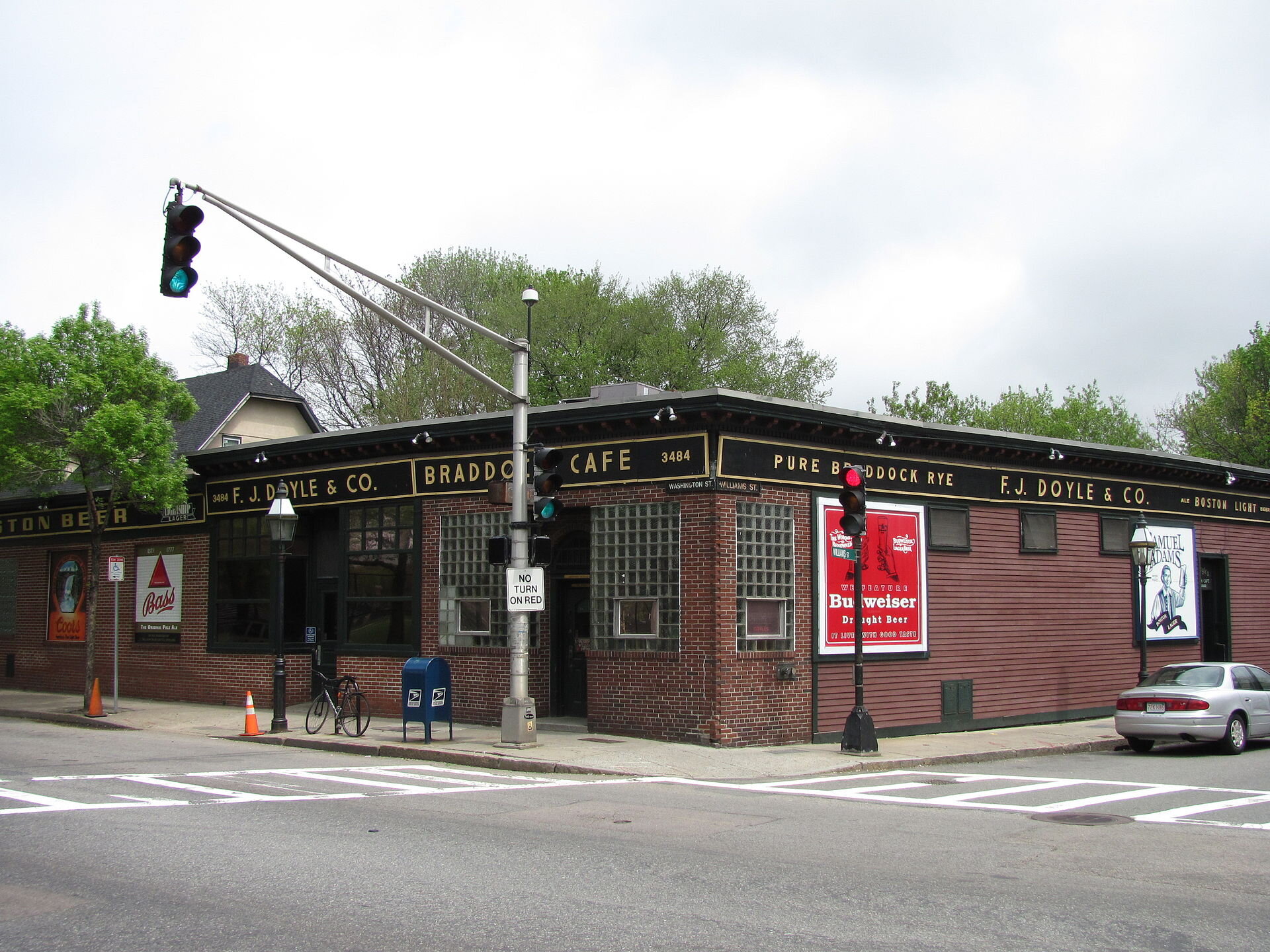
'The amount of maniacs'
Doyle's Cafe, in Boston’s Jamaica Plain neighborhood. It’s a well-known watering hole.
— Photo by John Phelan
"It’s just a really interesting place to grow up. The sports teams, the colleges, the racial tension, the state workers, the boozing, the anger. All of that stuff. I don’t think I ever appreciated the amount of maniacs that live in Massachusetts until I left. When I lived here, I took it for granted that everyone was kind of funny and a bit of a character."
— Bill Burr (born in 1968), stand-up comedian who grew up in the inner Boston suburb of Canton
Maple sugaring means…
Boiling the maple sap in March to make syrup
“Maple sugaring exemplifies the classic New England values of connectness to land and community. Yankee ingenuity, observation of the natural world, heritage pride, entrepreneurship, homespun hospitality, make-do, and can-do, and simplicity.’’
— David K. Leff in Maple Sugaring: Keeping It Real in New England.
Mr. Leff (born 1955), of the Collinsville village in Canton, Conn., is a poet, essayist, lecturer and former deputy commissioner of the Connecticut Department of Environmental Protection.
Some of the Collins Company factory buildings in Collinsville on the Farmington River, viewed from Connecticut Route 179. The company, which closed in 1966, was once the world’s biggest maker of axes. It made other cutting tools, too. The river was the original source of the factory’s power.
‘The boozing, the anger’
"It’s {the Boston area} just a really interesting place to grow up. The sports teams, the colleges, the racial tension, the state workers, the boozing, the anger. All of that stuff. I don’t think I ever appreciated the amount of maniacs that live in Massachusetts until I left. When I lived here, I took it for granted that everyone was kind of funny and a bit of a character."
— Bill Burr (born 1968 in the Boston suburb of Canton, Mass.), standup comedian and actor
The name "Canton" comes from the erroneous early belief that Canton, China, was on the complete opposite side of the earth (antipodal). New England merchants in the 18th and 19th centuries had many lucrative commercial links with the Chinese port city of Canton (now called Guangzhou). Canton, Mass. was originally part of Stoughton.
Part of Great Blue Hill is in Canton, whose summit, at 635 feet, is the highest point in Greater Boston and Norfolk County and also the highest within 10 miles of the Atlantic coast south of central Maine.




